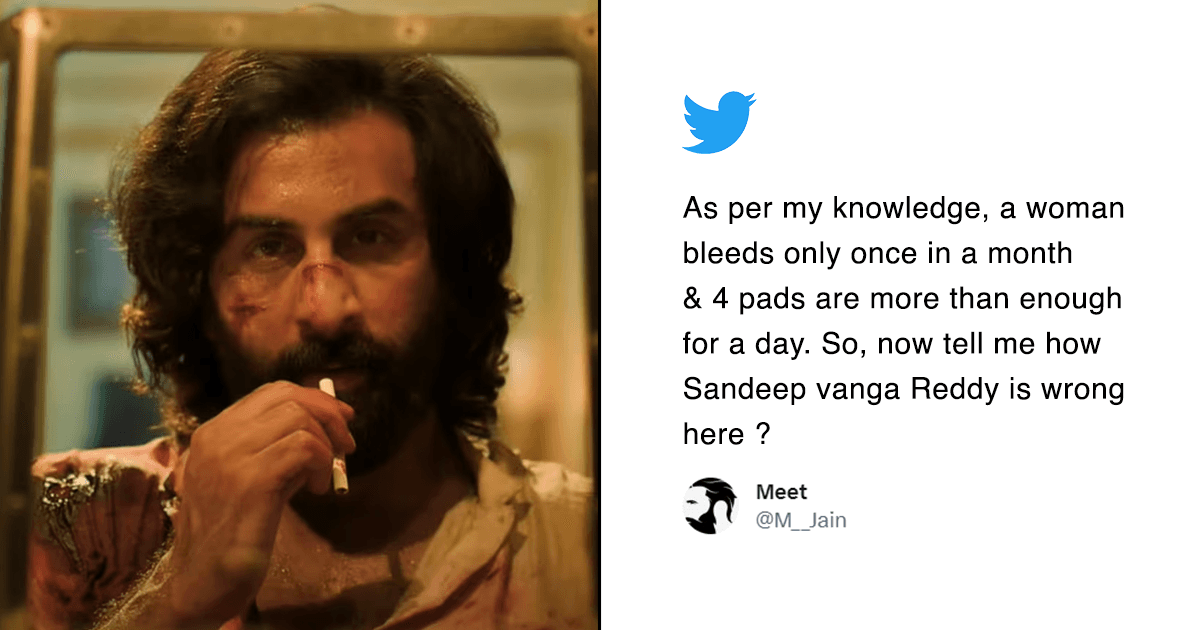With its foray into a somewhat less explored genre and the father-son pairing of Anil Kapoor and Harsh Varrdhan Kapoor, Netflix’s latest offering, Thar, a neo-western thriller, has given the audience plenty to discuss.


The film, which is set in the town of Munabao in Rajasthan, is primarily about the mysteries and horrors that lay beneath the village’s peaceful facade. Making a brutal murder of a man the jumping-off point, the narrative then chronicles a string of events that leads to the arrival of a mysterious stranger, Siddharth (Harsh Varrdhan Kapoor).
A rape-revenge thriller at its core, Thar also tackles a few societal concerns subtly all through the film. The film explores casteism and misogyny in some of its scenes, amid the violence and drugs that are turning the sleepy village into a rot.
In one of the scenes, a villager approaches a lower-caste head constable, Bhure, played by Satish Kaushik, for a cigarette. And, in a quest to redeem the character, the old guy makes a statement that becomes one of the few sincere moments of the film. When he notices Bhure’s hesitates to lend a cigarette, the man asserts that “cigarette ki koi jaati-paati nahi hoti“
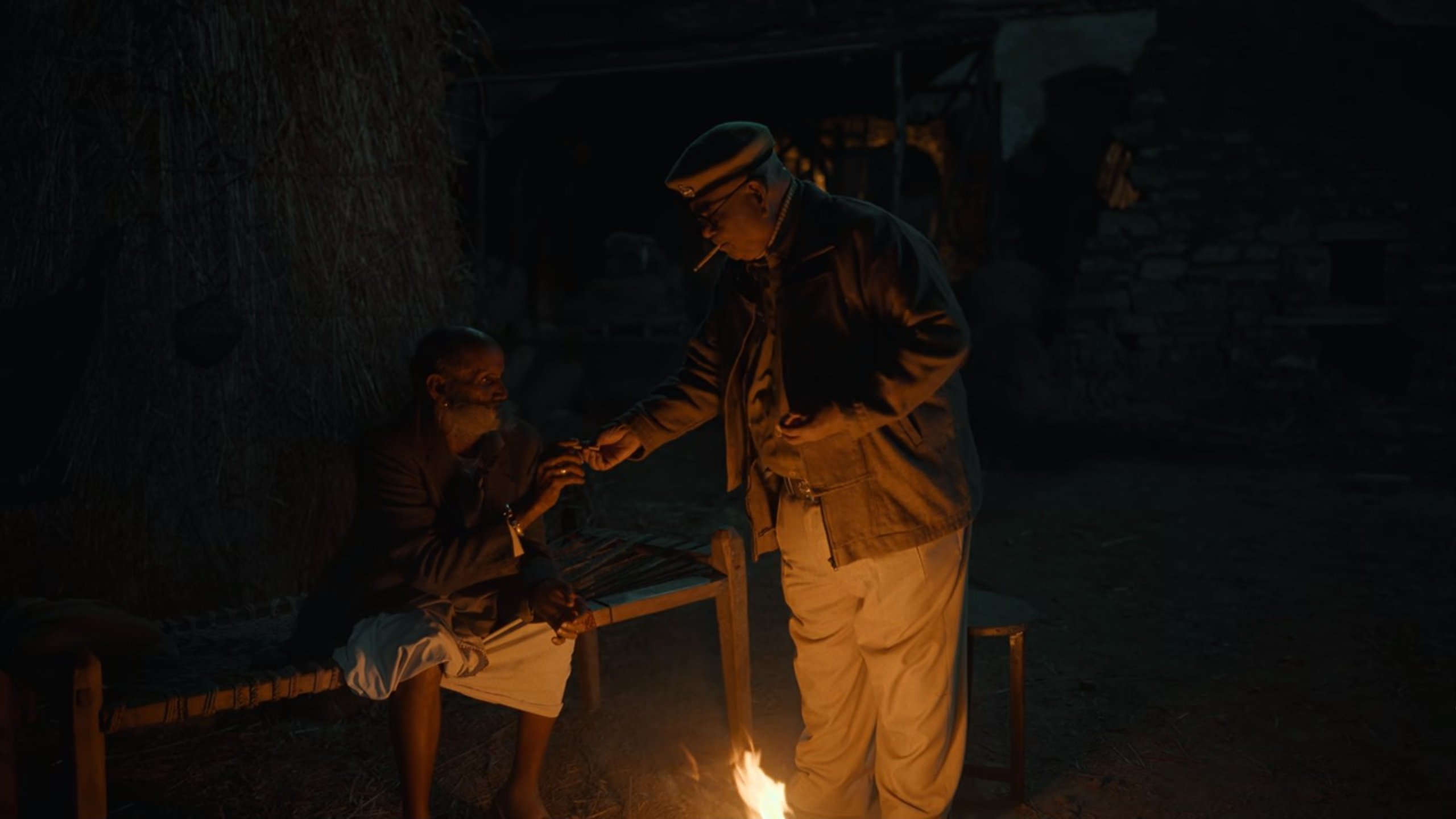
Meanwhile, women appear to be a major pariah in the community, who live under the heavy burden of ghoongats, discriminatory social system, and orthodoxy.
Fatima Sana Shaikh, the thriller’s femme fatale, serves as the trigger for uncovering the regressive and conservative mentality of villagers. Of course, in a rural setting, open-mindedness is unlikely, but the creators have not shied away from depicting the brutal truth. Shaikh plays Chetna, the wife of a villager, Panna Ram, and her character accurately reflects the state of women in such localities.
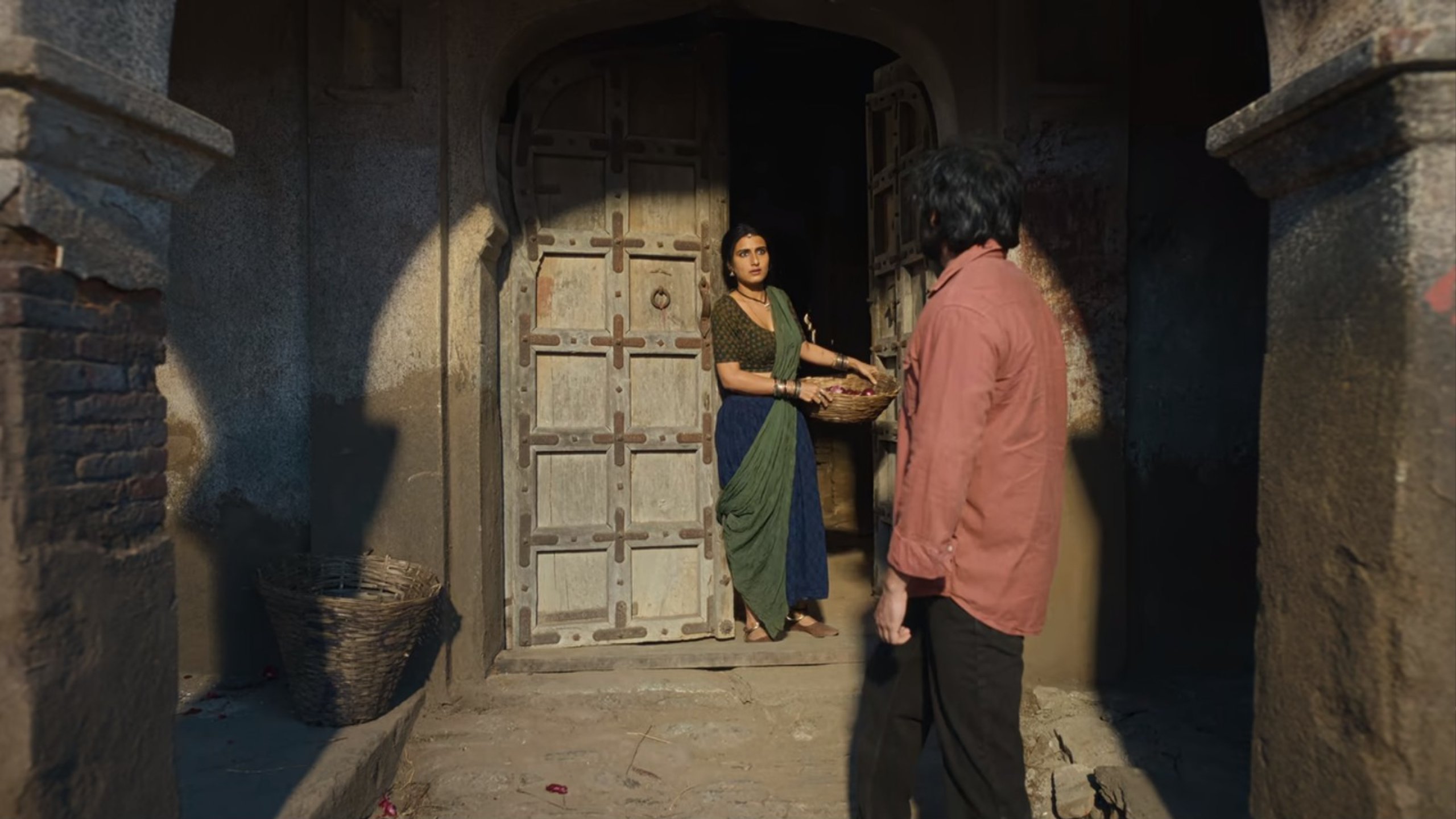
A place where the arrival of an unknown man in her home, in the absence of her husband, is enough to brand her a slut. The occurrence, however, is not confined to rural areas, and filmmaker Raj Singh Chaudhary expertly sets the situation to reflect society.
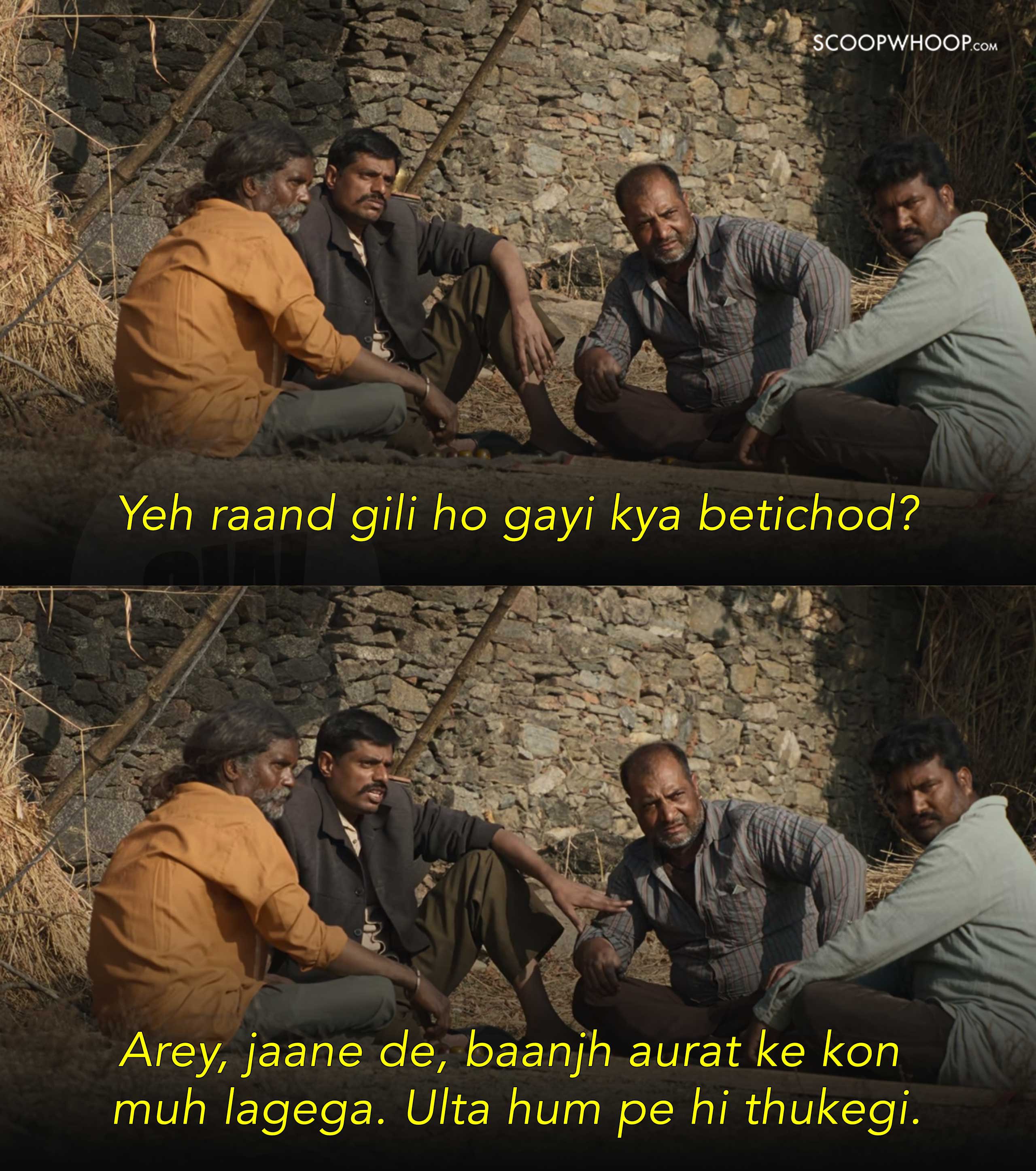
In a later scene, one of the bystanders is seen whispering about the incident to Panna Ram. The outraged husband, predictably, resorts to physical abuse against his wife over rumours of her hosting a stranger. The director subtly reveals what happens next by exposing bruises on Chetna’s face, without overtly showing the episode.
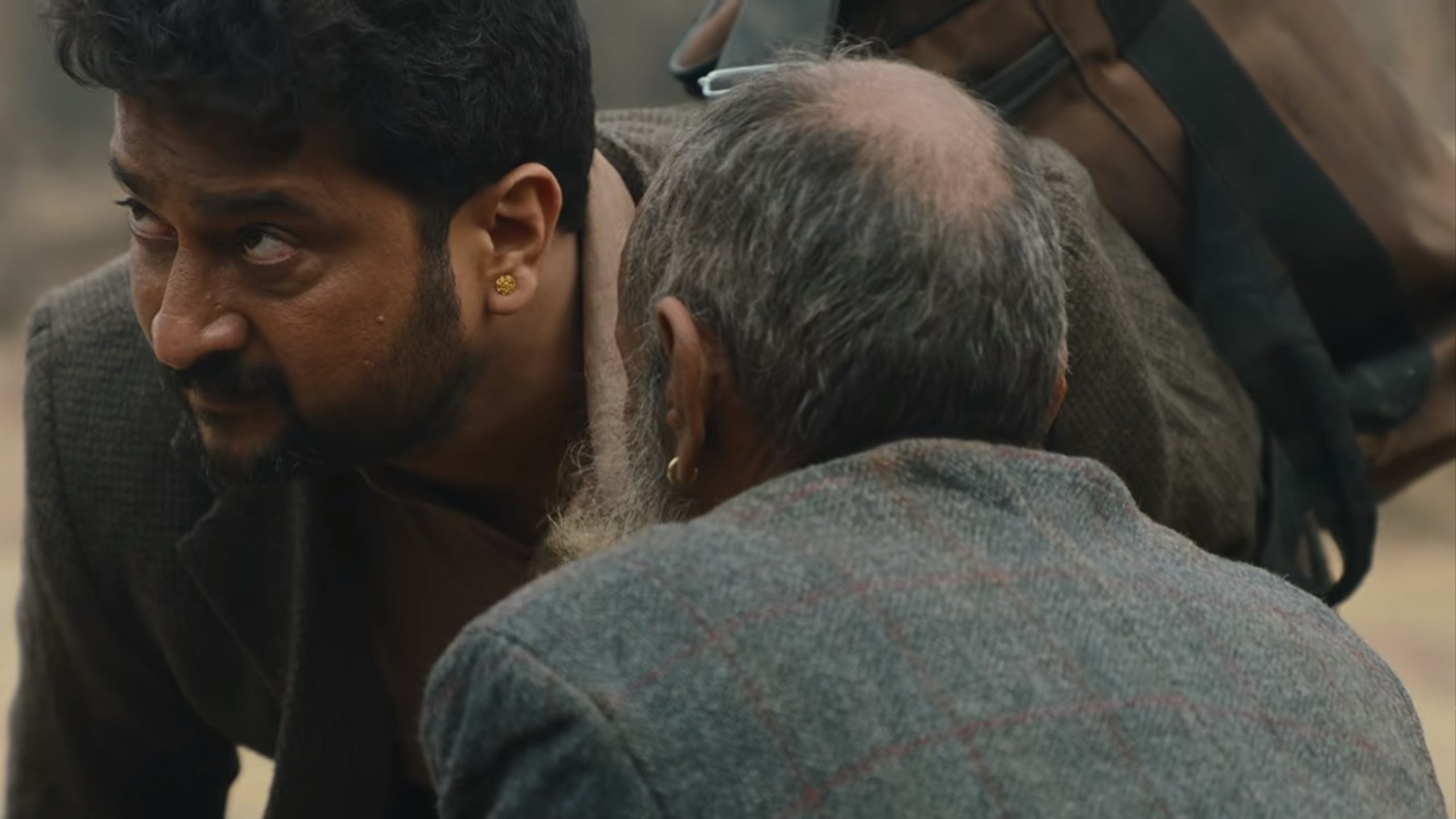
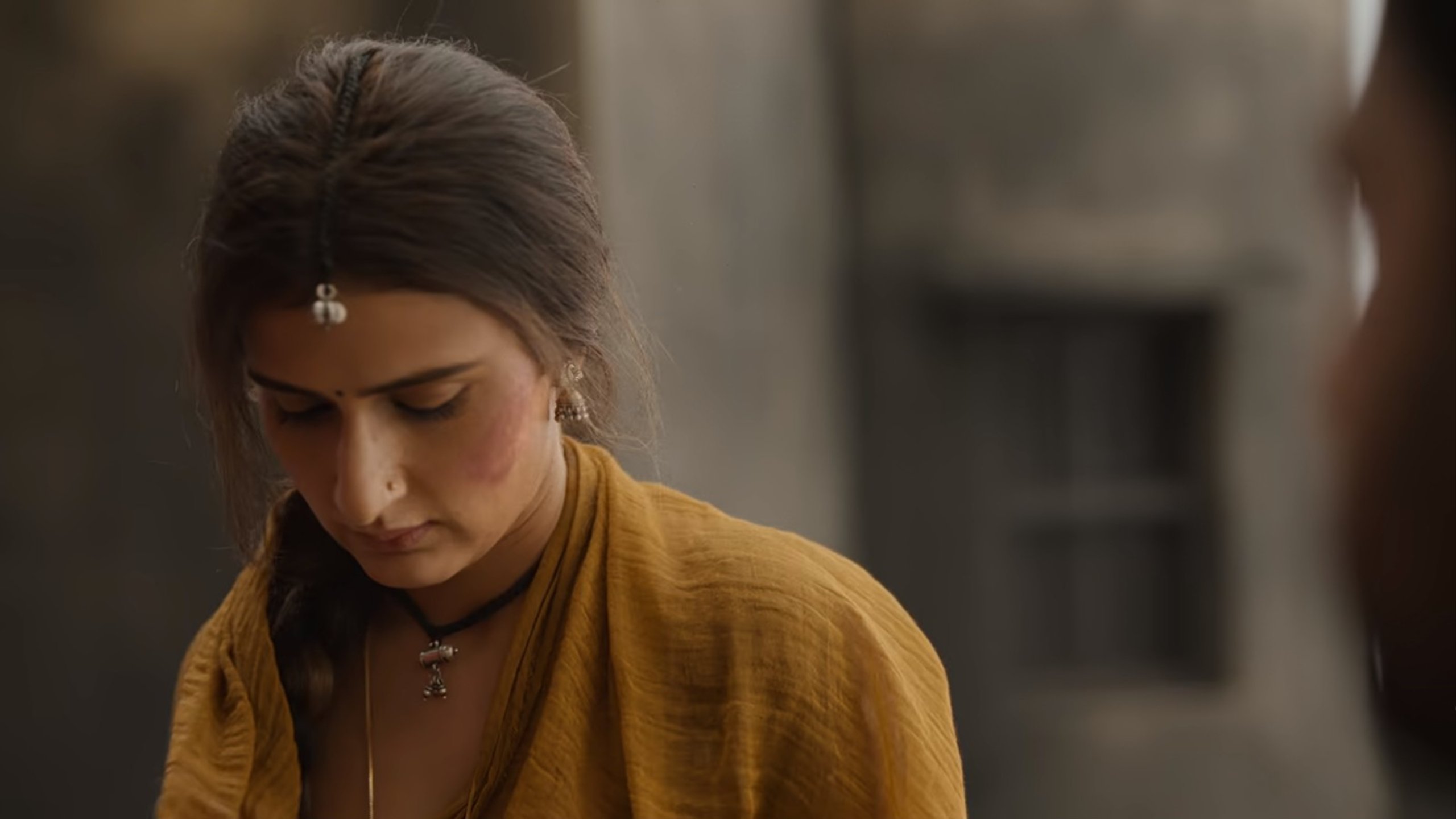
When Kapoor’s character arrives at their home, this time in the presence of Panna Ram, he claims that the man has tarnished his honor by paying a visit to his wife. An ironic assertion from a man who has no qualms about thrashing his woman.
Chetna, standing silently and resuming to prepare tea for her husband, symbolizes the downtrodden women’s lack of voice in a societal structure.
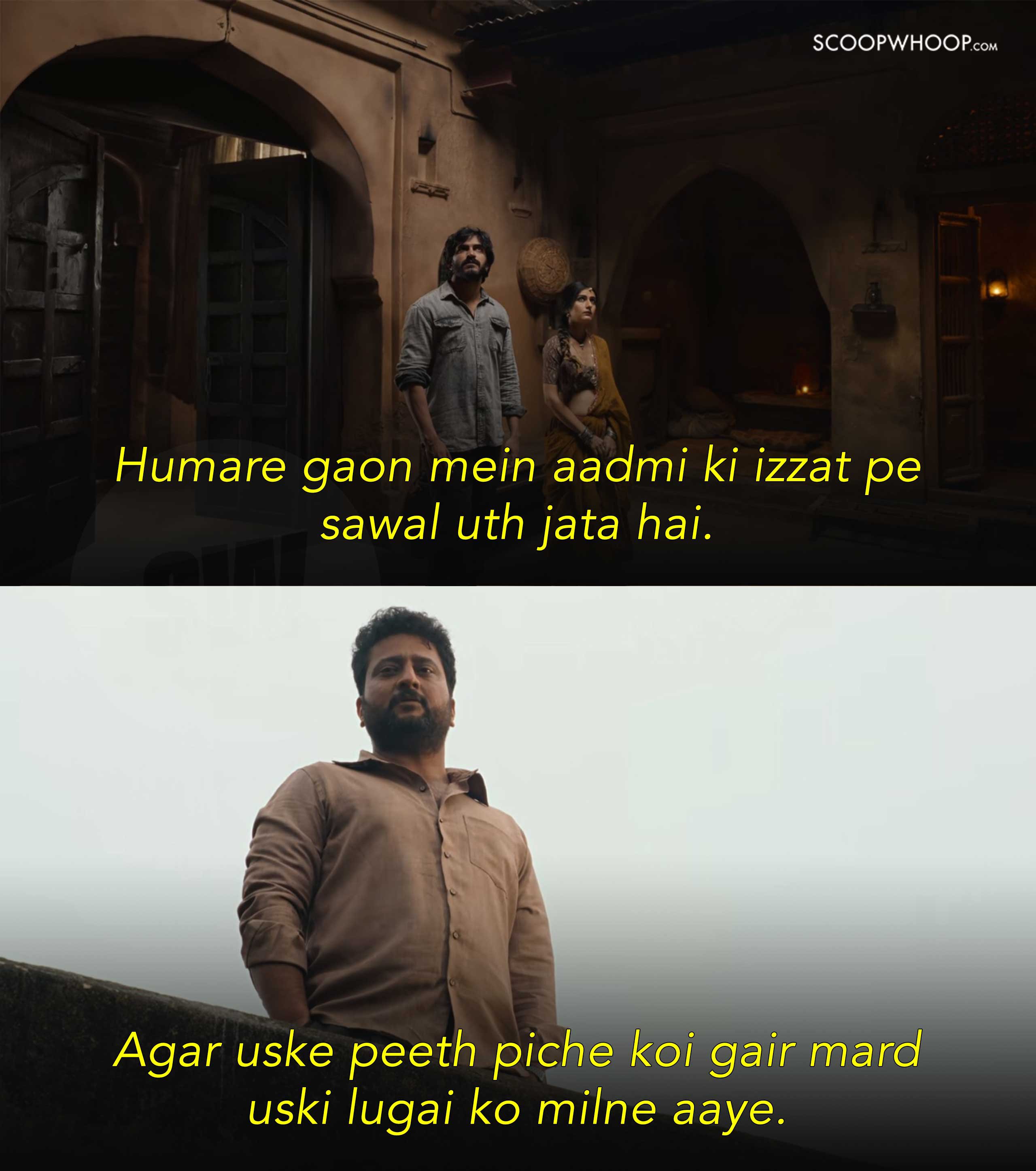
A few minutes into the scene, Panna Ram talks to the same guy about his wife’s apparent infertility. The episodes aptly depict their opposing ideas on the concept of honor, with men wanting to keep their women shrouded behind veils but belittling them publicly.
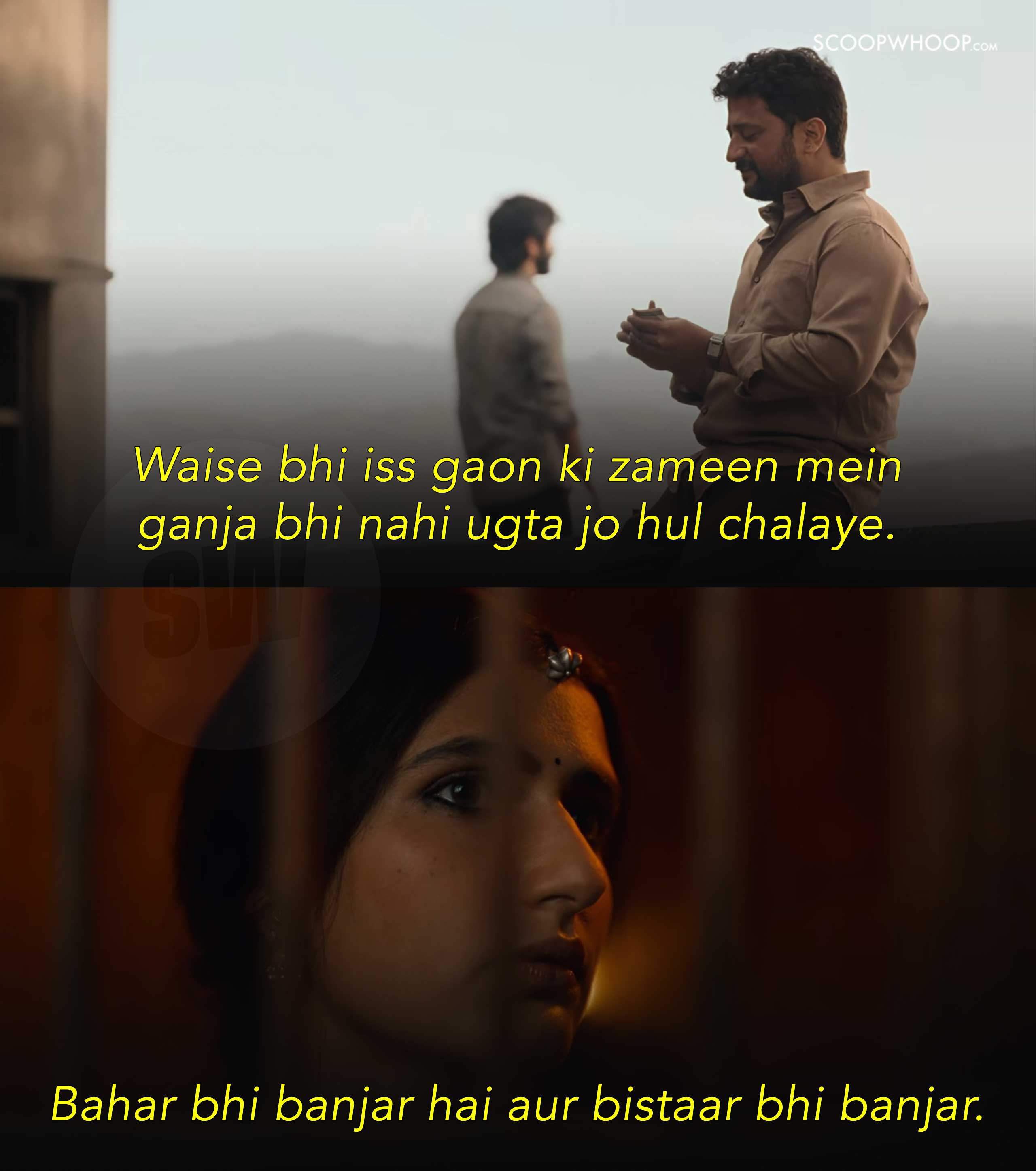
Chetna is established as a barren woman in several moments throughout the film. She is shown to be expecting a child as the film comes to an end. The revelation is also a veiled jab at society’s bias. While she is being chastised for not bearing a child, the man is given a pass.
While the focus of Thar remains mostly on uncovering the mystery, moments like these act as a stark reminder of society’s continual oppression of women – even in the midst of a murder.







